France’s World Cup victory in 1998 was meant to herald a new France where everyone was on the same team, whatever their background. And 18 years on, as France host the European Championships, has anything changed? At the heart of Les Bleus’ quest for glory, this profound and existential question remains: can the multiracial team unite France?
In July 1998, France won the World Cup on home soil. Zinedine Zidane’s headers, either side of the half, and Emmanuel Petit’s last minute angled strike, dispatched with a mundane finality, crowned Les Bleus world champions.
The mighty Brazilians had been humiliated.
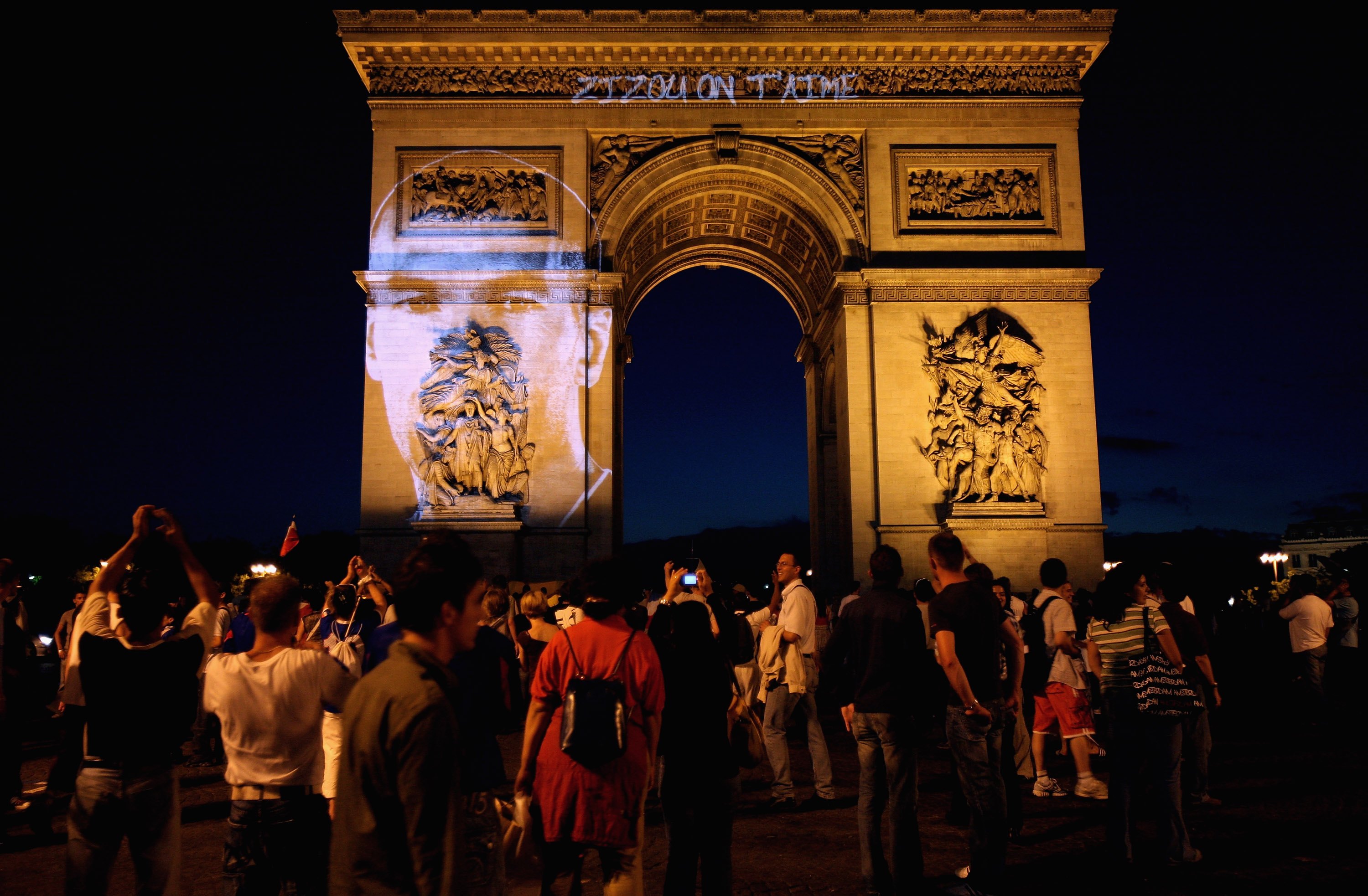
Later that night, Zidane’s image was projected on the iconic Arc de Triomphe. France and one-million delirious fans revelled on the Champs-Élysées in footballing ecstasy. Zidane had kissed the World Cup trophy, a potent image that immediately granted him the status of both national mega- and meta- star.
The national team was a ‘cultural mosaic’, a beacon for multiculturalism.
For the French fans had not particularly taken to the Juventus player, but when Les Bleus won the World Cup, France embraced its new son as a demi-god. Suddenly, the ethnic diversity of the team received praise. Zidane had Kabyle descent in Algeria. Patrick Vieira was born in Senegal, and his grandfather had served in the French army. Marcel Desailly was of the Ga–Dangme ethnic group in Ghana. More than 50 per cent of the squad’s players had foreign ancestry.
The national team was a ‘cultural mosaic’, a beacon for multiculturalism, representing a new France with assimilated and uniformly French citizens. The victory of multi-ethnic and pan-African nature was construed as national superiority born from the tolerance of the French Enlightenment and the fraternity of the French Revolution, not as a mark of a long and bloody colonial history, according to Dutch professor Ian Buruma.
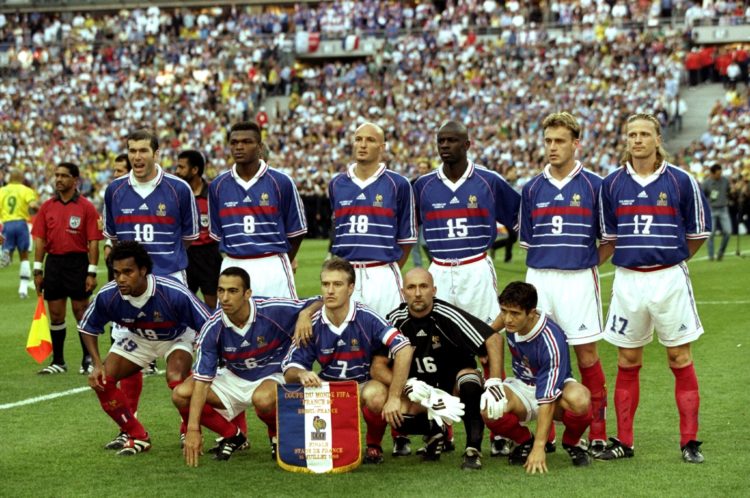
Faint hopes of a rainbow nation – ‘black, blanc, beur à la Francaise’ (beur is a French term to describe persons, like Zidane, with a north African background) – were born, but even within days of the victory, cynical commentators tore that mythology apart.
Lilian Thuram, who had played so exquisitely against Croatia in the semi-finals, made the most astute remark and pointed out that the team was not a symbol of what was, but rather a hint of what could be. In his opinion, the intense mass celebrations were the consequence of a state of exception and more precisely, the promise of a different France, one of confrontation with, and acceptance of its colonial past.
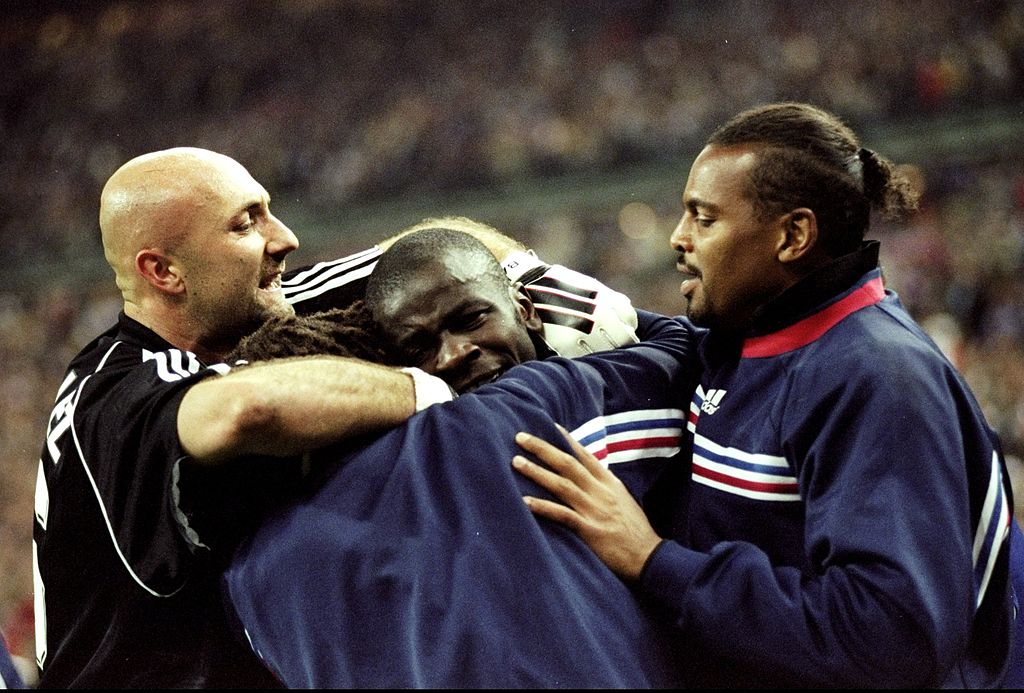
Both Thuram and Zidane became icons, courtesy of the sumptuous goals they had scored in the semi-final and final, but when the quota scandal surfaced in France they both reacted very differently, albeit in line with the personal image they had crafted since that final in Saint-Denis. In the spring of 2011, Mohamed Belkacemi, a mid-level football official at the French football federation FFF, leaked the verbatim record of a conversation between French coach Laurent Blanc and his federation’s top officials.
Blanc preferred players with ‘our culture, our history.’
They discussed the introduction of quotas to limit dual-nationality players at youth training academies. Blanc favoured the idea of quotas and called black players ‘big, strong, powerful.’ The transcript revealed that Blanc preferred players with ‘our culture, our history.’
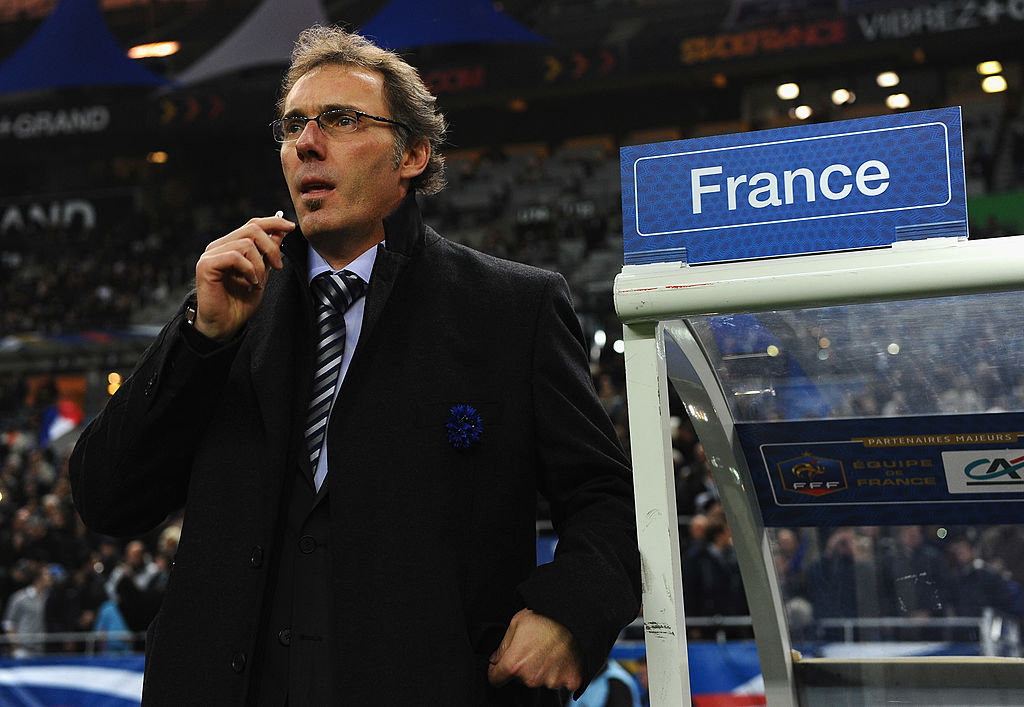
The question of double nationality was, however, justified, given the nebulous FIFA rules. Consider this: a boy of Ghanaian parents born in Paris is selected for a youth academy, but there is an equally talented player exclusively born to French parents. Whom should the FFF select in the knowledge that the first boy may still choose to play for the Black Stars later?
In his typically laconic and aloof manner, Zidane, loyal to his 1998 captain and conscious of his own carefully curated image, defended Blanc, declaring that Blanc is not a racist, but that player development at academies is part of a wider debate. ‘His wife is Algerian!’ exclaimed Zidane.
Thuram had a public duel with Nicolas Sarkozy.
Thuram reacted very differently. He highlighted the insularity and danger of reason distorted by racial thoughts. After the banlieu riots in 2005, Thuram had a public duel with Nicolas Sarkozy over the standard to which public figures and officials should be held and the intolerance for any xenophobic or racist language. Yet in 1998, Thuram had asked a photo to be taken with all the black players gathered around the World Cup trophy.
The FFF’s proclaimed outrage over the quota scandal quickly watered down to self-exoneration, but the political dimension, a year before the presidential elections, was tangible. On the back of France’s 2010 World Cup fiasco (when the anti-immigration undercurrents of French society argued that the black and Muslim players behind the mutiny in Knysna, South Africa, were not compatible with France and the country’s culture) football again, fanned the debate about French nationhood and identity.
France is groping with a new sense of identity.
France was indeed one of the very first countries to embrace the idea of nationhood, so strongly formulated in the early days of the Republic. But, like many former imperial powers, France is groping with a new sense of identity.
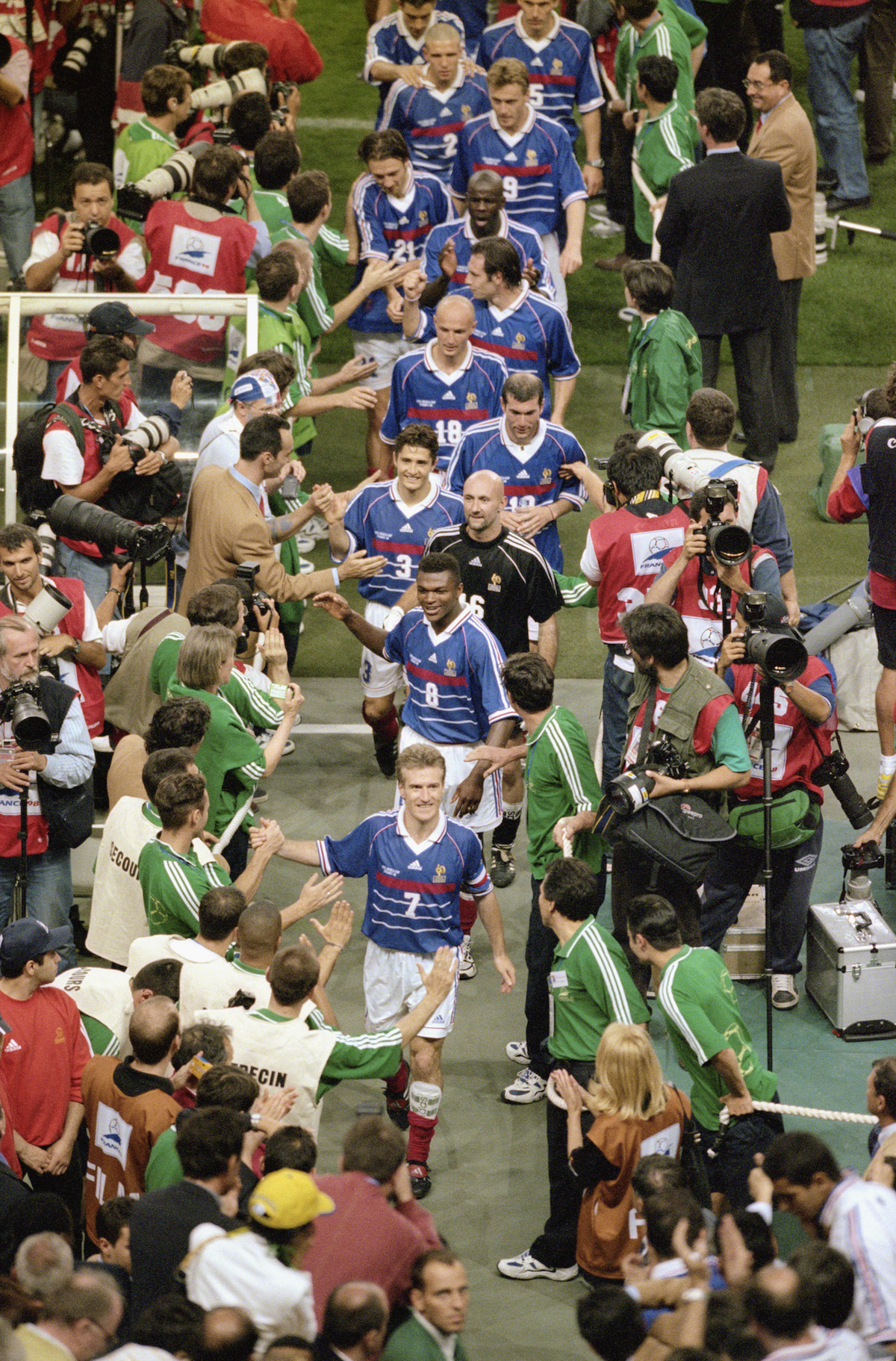
‘Le Sextape’ is an apposite example of France’s struggle. A court charged Real Madrid striker Karim Benzema, a feeble performer in the Champions League final, with conspiracy to blackmail over an alleged attempt to extort funds from France team mate Mathieu Valbuena using a sex tape.
In a poll by leading French daily Le Parisien, the French public backed French coach Didier Deschamps for omitting the player, a ‘beur’, from the EURO 2016 squad – 82 per cent of respondents believed ‘DD’ had taken the correct decision.
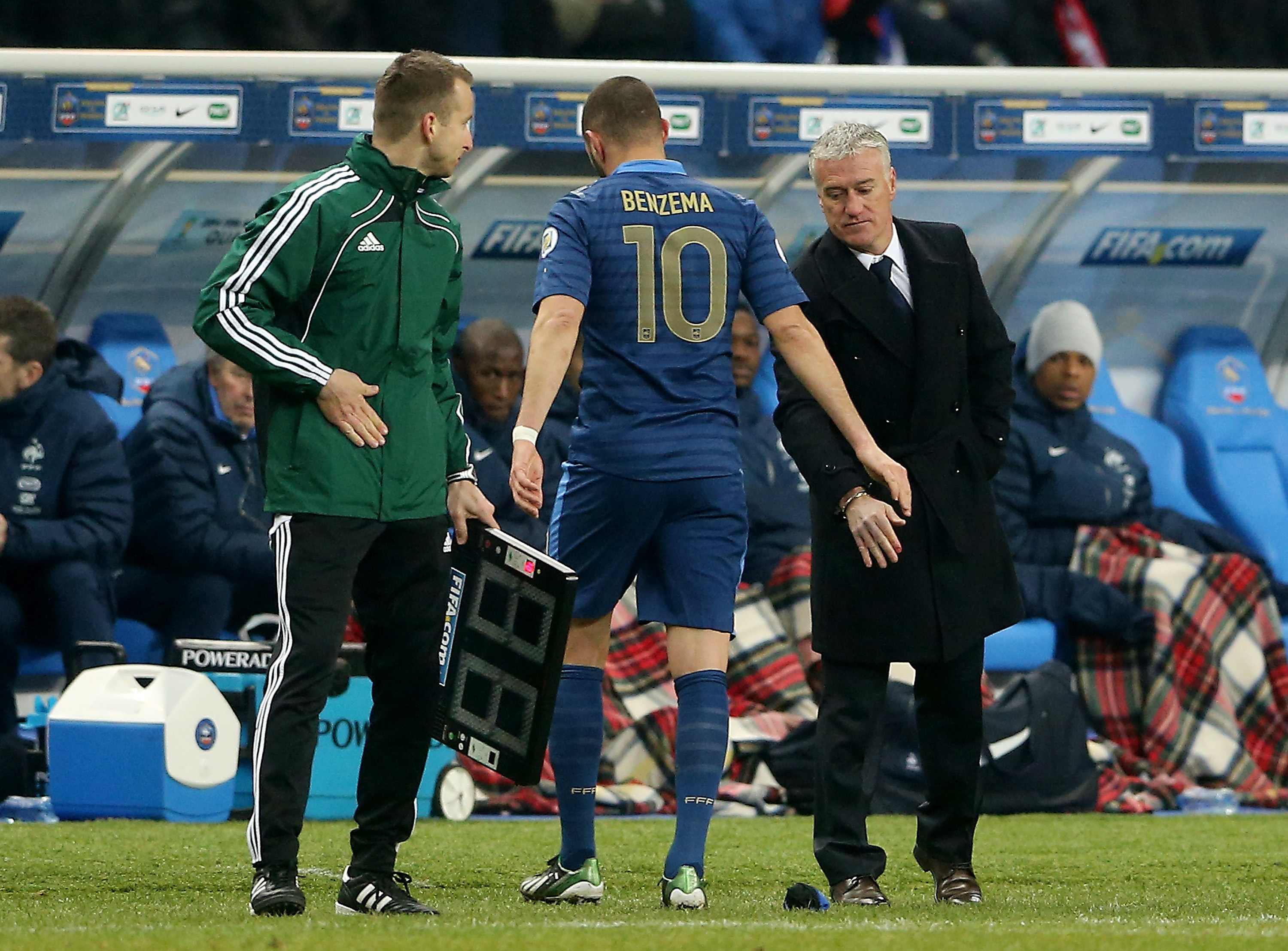
Benzema, and gifted enfant terrible Eric Cantona, hit back at Deschamps, stating that the coach had given in to pressure from racists parts of France. Deschamps’ house also got vandalised, with the word ‘racist’ graffitied on it.
Going into EURO 2016, French coach Didier Deschamps has selected a very deep squad with, again, a pronounced African footprint: ten out of 23 players have African heritage. That richness in players, like in 1998, is the result of French football’s longstanding open approach to players of all origins.
In football, with its many flaws, the idea of united France may be tangible.
In the footsteps of Zidane and Thuram, the generation of Paul Pogba and Blaise Matuidi, of Guinean and Angolan descent respectively, will seek glory on home soil, but, at the same time, represent a brittle nation. At least, in football, with its many flaws, the idea of united France may be tangible, or as one French politician put it – the French team has only one colour and that’s blue.
